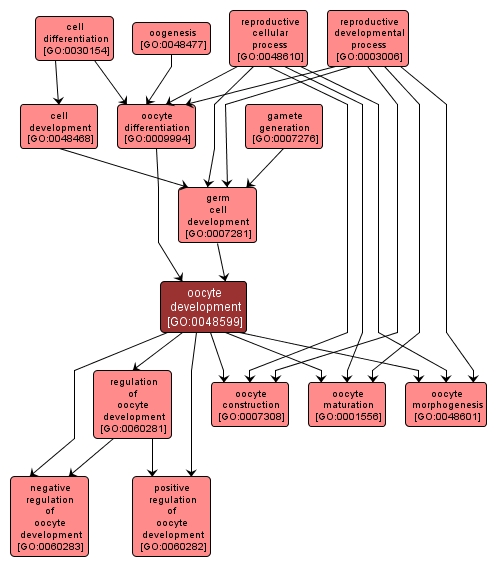GO TERM SUMMARY
|
| Name: |
oocyte development |
| Acc: |
GO:0048599 |
| Aspect: |
Biological Process |
| Desc: |
The process whose specific outcome is the progression of an oocyte over time, from initial commitment of the cell to its specific fate, to the fully functional differentiated cell. |
|

|
INTERACTIVE GO GRAPH
|














